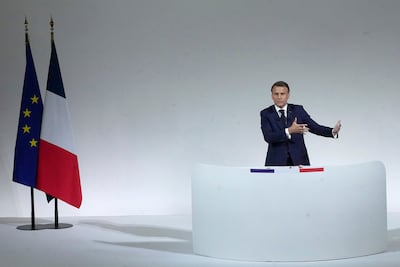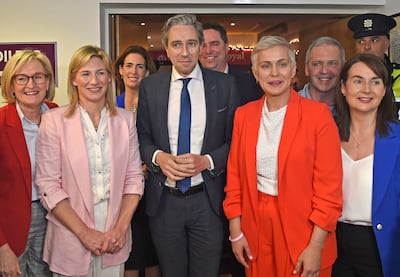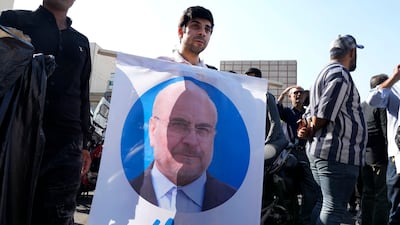In a time of international turmoil, the prominent role given to national elections in 2024 is unquestionably the story of the year. Elections bring changes in direction, even where incumbency is maintained, so the tagline is much more than the media hype that they generate.
London’s King College estimates that about 1.5 billion registered voters would go to the polls in elections that are taking place in more than 50 countries this year, which between them hold almost half of the world’s population. This does not only open up policy shifts. The fallout for geopolitical trends is already significant and will grow. The votes also give us insights into the development of political and social trends.
Now, here’s the twist in the dynamic of the year: the number of elections is growing, with several significant new general elections slated for June and July. Call this the fear of missing out – or Fomo – effect of the super-election cycle.
It is something in keeping with the times. The idea that political power can be used to momentous effect is becoming more and more contagious. It means that not only will those countries joining the bandwagon see their national story change, but it also fits into the directional change of countries becoming more assertive of their national interests.
Collaboration may still be on the table and could prove to be the basis on which we get through this period of transition. But in the long run, pooled sovereignty is set to be the victim of the year of elections. Already on a decade-long slide, the results that affirm the drift away from multilateral options are the ones that are likely to stick in the memory when we come to look back at 2024.
We can say this even without going into the many twists and turns that will unfold in the months leading up to the US presidential election in November. That moment will provide a cap to define 2024’s legacy for good or ill.

From the vantage point of London, where the UK general election campaign reached its exact halfway point last week, it is easy to see where this election has surprised.
The sudden burst of election fever around Nigel Farage’s Reform UK party stems from the veteran leader’s Fomo arising from the decline of the Conservative party. There is no doubt that the Tories’ inept campaign has opened the gate for him.
The recently held EU parliamentary elections were, of course, well discussed as part of the year of elections, with the collateral effects playing out still.
This is not least because they have caused a National Assembly election in France that is likely to see the installation of a new prime minister. What President Emmanuel Macron wanted to achieve last week by asking the public for a new legislature was a corralling of the hard right in his country.
Those unnerved by the announcement are accusing him of acting like former UK prime minister David Cameron back at the start of this decade. Mr Macron has opened an electoral vista that the insurgents could storm right through – which is exactly what Mr Farage and his then allies did by winning the 2016 Brexit vote that pivoted the UK right out of the EU.
Now National Rally leader Marine Le Pen and party president Jordan Bardella have a chance to do the same thing in the French parliamentary elections that start on June 27. The question is whether Mr Macron can pull the so-called “Republican Lever” and erect a rampart that the extreme parties cannot mount.
The jury is out on the calculation. Mr Macron’s announcement has forced the various parties to scramble into new alliances.
For example, the left – including the far left and communists – has come together as one. Meanwhile, the decision of the traditional conservatives to oust their leader, Eric Ciotti, after he suggested a pact with Ms Le Pen’s forces has caused that political stream to collapse. As they were Mr Macron’s most feasible allies, the turmoil there is shaping up to be more of a handicap to his hopes than he realised.

Another poll campaign that nobody had on their dance card is the Iranian presidential election. This is understandably so, as it came about as a result of the death of then president Ebrahim Raisi in a helicopter crash last month.
That vote can still be read in two ways. The most prepared candidates who have piled into the race are the reliable hardliners with long careers in the intelligence services or state institutions, such as Parliament Speaker Mohammad Baqer Qalibaf.
But there is a wildcard in Masoud Pezeshkian, an obscure veteran MP who has a reputation for personal probity and modest personal life. This second road for the Iranian election is that it offers a platform for the country’s palpable discontent to channel into the vote.
It was not so long ago that such a scenario played out in the 2009 election. The national confrontation that followed proved to be fatal, but it decisively resolved that the country would take its current course.
What next is the question of the year.
The strong performance of Ireland’s two main governing parties in the EU election is putting pressure on Prime Minister Simon Harris to consider advancing the general election, which is due in March next year.
A sudden weakness in the radical appeal of the opposition Sinn Fein is the opportunity for Mr Harris, who has been at the helm for just two months, to start rewriting the narrative of Irish politics. Does he go now for an apparent opportunity? By waiting for the consensus date at the end of this year, the risk of missing his moment only grows.
There could be more. We’ve said nothing of the pressure that is currently on German Chancellor Olaf Scholz to act as his unpopularity grows.
It is clear therefore that, as the votes keep on coming, the mood to take to the election waves is contagious.


